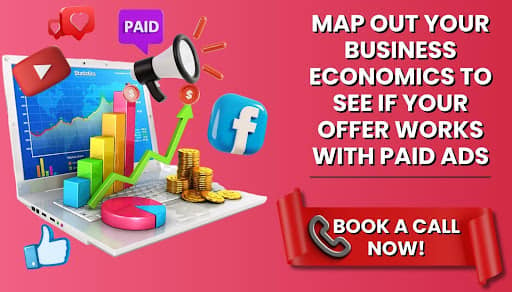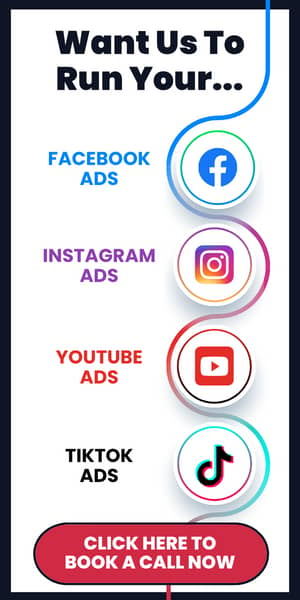If you want to use high-ticket digital marketing to launch and sell your product but aren’t sure what all it entails and how to do it successfully, then this article is for you.
High-ticket digital marketing has become a crucial strategy for achieving 8-figure success, and we’re revealing exactly how to make it happen.
In this comprehensive guide, we will navigate you through the strategic economics of crafting compelling high-ticket offers, positioning them for profit, targeting the right audience, and optimizing your digital campaigns for maximum impact.
Whether you’re a seasoned marketer seeking to elevate your strategies or a product creator in the digital marketplace, this article will equip you with the insights, tools, and strategies needed to sell high-ticket items and reveal the road to eight-figure success through the power of strategic, high-ticket digital marketing.
What Is High-Ticket Digital Marketing?
High-ticket digital marketing is the process of implementing online marketing strategies in order to generate leads for your high-ticket product or service.
This spans a range of approaches, from paid advertising and organic strategies to effective email campaigns and beyond.
In our modern age, social media and online activity have been exploding.
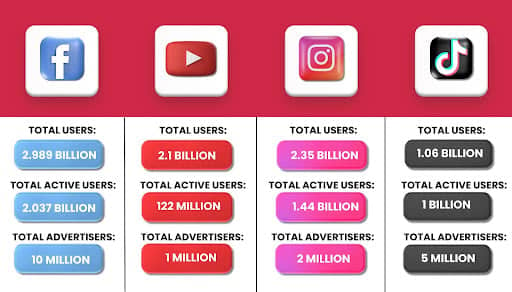
This is the reason why high-ticket digital marketing even exists in the first place!
With the ability for businesses to reach more people than ever before, these mediums are the place to be positioning your products and services.
The surge in the high-ticket coaching and consulting industry is booming right alongside online engagement.
The combination of remote business models, unprecedented access to billions of individuals on social media, and cost-effective advertisement visibility have proven to be the ultimate formula for the success of numerous businesses worldwide.
Are High-Ticket Digital Marketing & High-Ticket Products the Right Move For You?
There are four major considerations before you dive into high-ticket digital marketing.
You need to have economics that makes sense to scale, your product positioned effectively with an “it” factor, a confirmed offer that people are buying, and a bleeding neck problem that requires immediate attention and an urgent solution.
Without these four components, you will likely not be able to effectively capitalize on high-ticket digital marketing and the opportunities it presents.
Let’s look at each component individually, and how you can implement it to sell your own high-ticket items.
Economics
Do your economics actually make sense to scale with high-ticket digital marketing?
We primarily work with coaches and consultants doing 6 to 7 figures who want to add on another $10-100k per month.
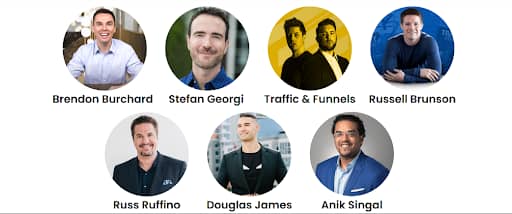
The economics of a business are very circumstantial and are going to be unique to each business’ expenses so it is tough to pinpoint exactly when it is the right time to scale for your unique situation.
That’s why when we talk to coaches and consultants on the phone, before they even sign up with us, we gather the information to know exactly where their business is economically so we can understand their unique situation and whether or not they are able to scale.
If you want to see whether or not your economics make sense right now to hit your revenue goals, then book a strategy session with us here.
We’ll let you know exactly what we think you should do to scale your business to reach the next level and whether or not paid advertising is going to be a good option for you.
Mapping out your business economics is truly one of the biggest things you want to get right when it comes to running your consulting business—especially if you’re looking at doing paid advertising.
General Rules of Thumb for Paid Advertising
Let’s look at an example.
If you’re selling a product for around $5,800 and have identified a starving market in need of your solution, then generally this will play out nicely for paid advertising.
Depending upon how niche or blue ocean your market is, we see the cost per acquisition ranging anywhere from $1,000 – $3,500.
With a $5,800 offer then the average return on ad spend (ROAS) would be anywhere from 1.65 all the way up to 5.8.
These numbers can be a rough guide to show you what you can expect with paid advertising.
Product Positioning
Product positioning shapes the perception of how a product fulfills specific customer needs, differentiates itself from competitors within the market, and establishes a unique and memorable identity for the product.
Differentiation Factor
In order to absolutely nail it with your advertising strategy, you need to have that ‘IT’ factor.
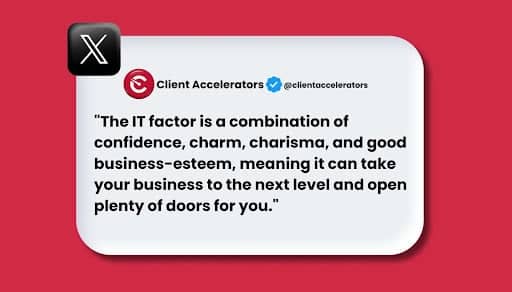
You need to stand out from your competitors especially if you are in a highly competitive marketplace.
What is your ‘IT’ factor?
What’s the thing that is unique about your business that your customer really cares about?
If you’re in a highly saturated marketplace, then the odds are your customers have already tried other existing solutions. This means they have emotional ties to the products or services they’ve tried in the past.
What is going to stop them and get them to watch your ad when they’ve already tried everything and have never gotten any results?
Asking these pivotal questions can be quite daunting at first but this is the information we need to create powerful and moving advertisements that take our clients to the next level.
Competition Level
In order to understand our client’s competition level, we need to configure where your offer is at on the 5 levels of market sophistication scale.
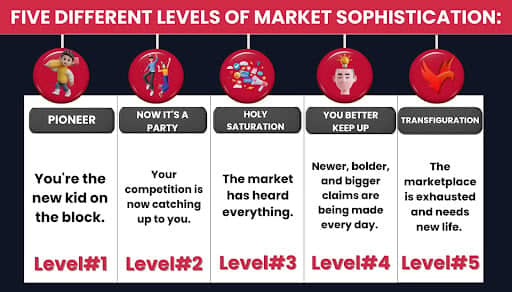
Most businesses we work with fall into Level #3 and Level #4 and these markets require a ton of creativity and unique mechanism development in order to stay competitive.
If you have a lot of competition, then the odds are you fall into these levels as well.
In order to gauge your likelihood of success with paid advertising, reflect on the questions discussed in the Differentiation Factor.
If you are amped when looking at these questions because you know your ‘IT’ factor, then it’s time to bring your offer to paid advertising.
If you’re not, then relook at your offer and work out what your ‘IT’ factor is before doing so.
Confirmed Offer
In order to tell if your high-ticket service has its place in the online marketplace, it’s crucial to observe a few questions.
Marketplace Research
What industry am I in and how large is it?
This will show you how much cash is flowing in your industry and how much market activity is going on.
When I look in comment sections, forums, and threads related to my industry topic, do I see people who are talking about the problem my business solves?
This will allow you to gauge the topics and conversations revolving around the particular product or service you offer.
Being ‘in-the-know’ about what common trends are occurring related to your product or service will help you confirm whether or not what you’re offering is relevant to your market.
Sales Temperature Gauge
Are people buying?
This will be the ultimate deciding factor of whether or not your offer is confirmed for paid advertising.
When you hop on the phone with people to sell your product, are you closing deals or getting the cold shoulder every time you make the offer?
Bleeding-Neck Problem
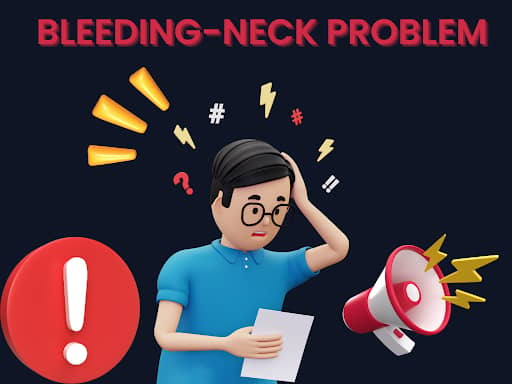
The final layer to identify whether or not you’re suited well for high-ticket digital marketing is asking yourself this question.
Does my product or service solve a bleeding-neck problem for my customer?
A “bleeding-neck problem” is a critical and urgent issue that requires immediate attention and a solution to alleviate the pain or urgency.
These problems often disrupt normal operations in business, hinder growth, or pose a significant threat to the well-being of the business or its customers.
Solving bleeding neck problems can lead to rapid relief, improved efficiency, and increased customer satisfaction.
For example, in the context of consulting or coaching services, a bleeding-neck problem might refer to a critical issue a client is facing that is causing substantial financial losses or jeopardizing the future of their business.
Consultants or coaches who can effectively address and solve bleeding-neck problems can provide substantial value to their clients and quickly establish themselves as trusted partners.
What is the bleeding-neck problem that your business solves?
—
When all four of these components work together, you can get incredible results like our client Douglas James. We took his high-ticket offer from -$55,536 net loss to an astonishing $751,307 net profit in just five months using Facebook ads.
The #1 Trick to High-Ticket Digital Marketing
The #1 trick to succeed in high-ticket digital marketing is getting highly qualified prospects on the other end of the phone.
If you can fill your sales calendar with perfect fits for your business, then you’ll be able to create a predictable and scalable paid advertising model.
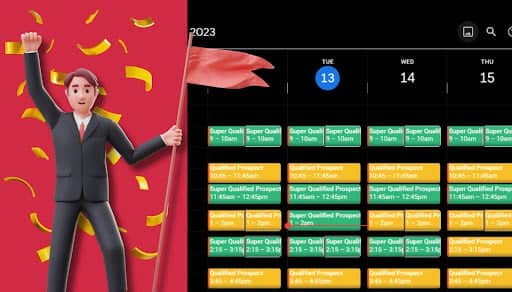
6 High-Ticket Digital Marketing Strategies to Find the Right Clients & Start Making Eight Figures
Strategy #1: Target Market Research
Research Questions
In order to truly know your customer, you need to do research on them and begin profiling them.
There are a ton of different research questions out there that you can begin with but we are going to do you one better today.
Get free access to the research questions we use in order to write killer copy.
This list of questions will give you ultra-clarity into who you need to be speaking to with your messaging.
Done right, you’ll be able to easily identify which avatars in your marketplace are truly the highly qualified prospects you want to be targeting.
Targeting Strategy
Once you do the thorough research process on your perfect avatar, it will become clear the targeting options you need to select.
For example, if you find that your target market follows Gary Vee, Grant Cardone, Brene Brown, and Entrepreneur Magazine, then all of those are interest options you can select in the Facebook Ads Manager.
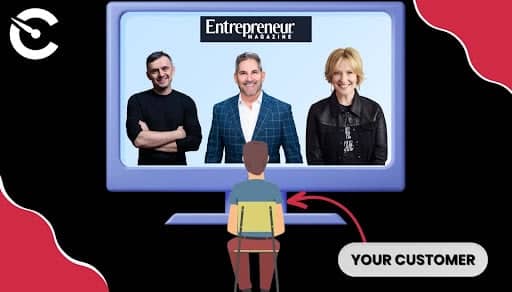
Since Instagram runs out of Facebook Ads Manager, you’ll be able to use the exact same target options for this platform.
On Google, you’ll be able to create custom website audiences that visit all of the websites which match your target market’s interests.
TikTok still has very limited targeting options but you will still be able to find some which are relevant to your specific audience.
Bonus Targeting Tip
The general rule of thumb that we follow for audience sizes is 2-5 million people.
If you find that the audience you’ve selected is too small, then stack them up so that you can get up to that mark.
Our philosophy is that 2-5M audience sizes fall right into the sweet spot where the key interests are targeted enough to find the right people and big enough to be able to scale.
Strategy #2: Set Up Hyros
In order to have any success with paid advertising, you’ll need to work around the reporting issues with the traditional tracking solutions offered by Facebook, Google, and TikTok.
Ad Tracking
The hands-down best solution we’ve found for this after spending over $150M on ads is without a doubt, Hyros.
Hyros offers the greatest product we’ve ever seen for ad reporting and solves the simple problem of not being able to tie back your sales to the ads they are coming from.
With the hyper-clarity that Hyros offers, you’ll be able to easily make decisions about where to spend your ad budget.
Bonus Feature: Qualified Lead Tracking
Another great thing about Hyros is that we are easily able to filter all of our reports by qualified leads and unqualified leads.
We can put all of our leads into these three buckets:
SMQL = Super Marketing Qualified Lead
MQL = Marketing Qualified Lead
NQL = Non-Qualified Lead
Here’s what qualified lead tracking can look like in Hyros
Strategy #3: Funnel Application
Qualification Parameters
You just learned about the three different types of leads we measure in our client’s funnels. (SMQL, MQL, NQL)
Let’s take a look at how we can go about setting this up.
The first step is determining your qualification parameters.
We recommend two criteria:
- Financial criteria – this is how much income the lead is making
- Motivation criteria – this measures the level of motivation your lead has to get their problem resolved
Information Gathering
The second step then is how we start collecting this information from our leads.
We’ve found that the best place to do this is through the application page in the funnel.
You can easily set up some questions which determine whether or not each lead coming in fits within your target criteria.
Here are some questions we recommend:
- Do you have the financial resources to invest? (or) If you were hit with a $10,000 medical bill, then how would you react?
- How motivated are you to get (insert their problem here) sorted in your life on a scale of 1-10? (or) On a scale of 1-10, how willing are you to invest in your own personal development in this area?
We cover all of this in the Ultimate Research Questionnaire – just give us an email to send it to and it’ll be in your inbox.
Tech Setup
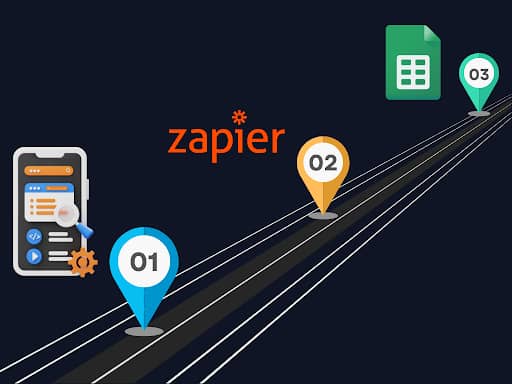
Now that you have all of your criteria sorted out for what makes a lead an SMQL, MQL, and an NQL, it’s time to set up the actual tech stack so you can use this information to your advantage.
There are many ways you can do this but the simplest way is to set up a marketing automation that whenever someone fills out your form all the information shoots over to a Google sheet.
We always use Zapier to set up this automation.
Once you get all of your lead information over into the Google sheet, you can set up conditional formatting so that it automatically shows you whether the lead is an MQL or an NQL.
This is the same exact setup we used to help our client produce 8 figures in profit in the past couple of years and get 9,950 qualified bookings in just two quarters.
$22M In Profit Since 2021
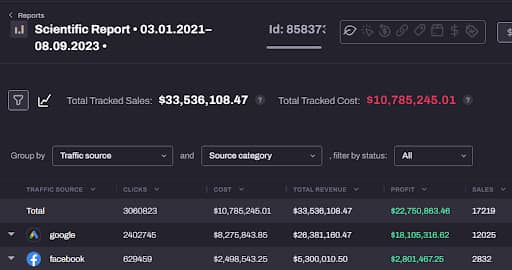
9,950 Qualified Calls in Q3 & Q4 of 2022
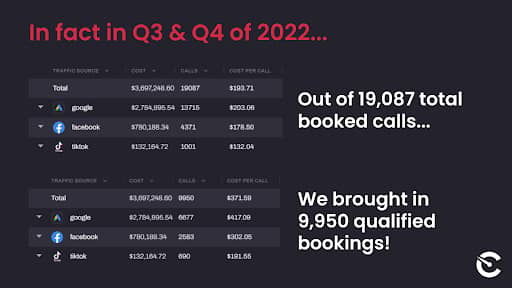
We highly recommend advising a developer to help you get this setup.
Strategy #4: Million Dollar Ad Formula
Steal Our Ad Template
Include these seven components (in this order!) to write killer ads.
1. Callout Your Target Market
We effortlessly capture the attention of the right audience by scripting our ads with the correct callouts in the hook.
You want to call out your target audience within the first 3-5 seconds of your advertisement.
This means saying something like “Are you a coach, author, expert, or speaker?” or “Are you a coach or consultant making $10k or more per month?”.
You can use the information you gathered with your research questions in order to form this callout question very well.
2. Credibility Statement
Now that you have your target audience hooked, you want to tell them who you are and why they should listen to you.
Review your list of achievements and you say something like:
“My name is (Insert Your Name) and I’ve worked with over (Insert Number Of People You’ve Worked With) coaches, authors, experts, and speakers. We’ve helped them (Insert Awesome Results You’ve Gotten With Your Customers).”
Here is an example to get your brain started:
“My name is Russ and I’ve worked with over 3,500 coaches, authors, experts, and speakers. We’ve helped them produce a cumulative $1B in total revenue.”
3. Proof
They are hooked, they know who you are, and now it’s time to nail them with proof that you’ve accomplished the results they are looking to achieve in their own lives or businesses.
You will understand this very well after having completed your research.
This way they know exactly what you’ve done and you can echo back to them the exact results they’re looking for.
4. Call To Action
After that, hit them with a call to action (CTA) and show them exactly where they are going to click and exactly what they will do on the next page.
Showing them exactly where they are going will not only get them familiar with the next page but will also set their expectations for what they’ll see on the next page.
5. More Proof
Then ideally you layer on even more proof to get them over the hump to take action.
Saying something like “My client, (Insert Name) went to the same page and took the same exact steps and now he’s (Insert Heaven Scenario Where Your Client Is).”
This will build up the notion that these tiny baby steps could actually mean helping them obtain the results they want to get in their lives.
6. Call To Action Again
Hit them with the call to action (CTA) again.
You’re continuously building up on why it’s important they take action because that is the whole point of this ad.
We want to show them what we have to offer is more valuable than what they were just about to do.
7. Countdown Timer
Give them 10 seconds after the video with a countdown timer and some music.
Sometimes people are just intrigued to hear everything you have to say and those people make it all the way to the end of the ad.
You don’t want to miss these people because they are probably very interested in what you have to offer.
Here is an example ad that has produced millions of dollars using this formula:
Strategy #5: Send Non-Qualified Leads To A Downsell
The moment you have been waiting for is finally here.
Calendar Optimization
Once you have a good flow of qualified prospects coming into your business, it’s time to optimize your sales calendar.
This is an opportunity for you to get all of those fence-sitters and tire-kickers off your calendar once and for all.
After leads fill out your application in the funnel, you can now send all qualified leads to your book a call page and redirect non-qualified leads to a downsell.
No more hopping on the phone with unqualified leads who are almost impossible to close.
Strategy #6: Advanced Pixel Tracking
MQL Data Isolation
The symptom of sending all of your qualified prospects to the book-a-call page is tenfold because now you can optimize your pixel data solely based on MQL information.
The way to do this is to simply put the pixel code on the book a call page (where you’re sending your SMQLs and MQLs) and DO NOT put the pixel on the downsell page (where you’re sending all of your NQLs).
You Can Make Eight-Figures Too Using High-Ticket Digital Marketing with Client Accelerators
The right high-ticket digital marketing strategy can have you selling to the right clients and making a great profit in no time.
But we get that this is a lot to set up and optimize on your own.
That’s why we’d like to set up and implement your high-ticket digital marketing strategy for you.
Click here to book a Strategy Session with our team of experts to deep dive into your marketing strategy and see if you are a good fit.
We’ll provide you with clear action steps you can take to start paid ads or make them more profitable! Fill out the form here to book your Strategy Session with our Team.


